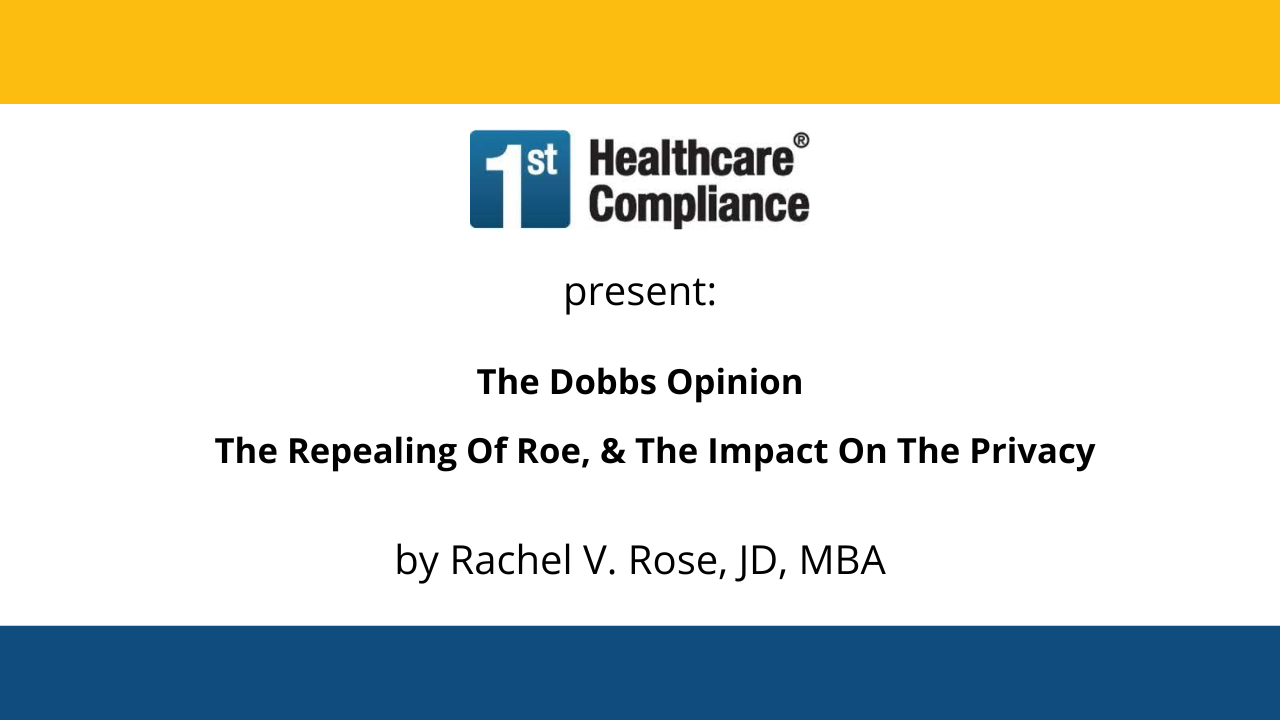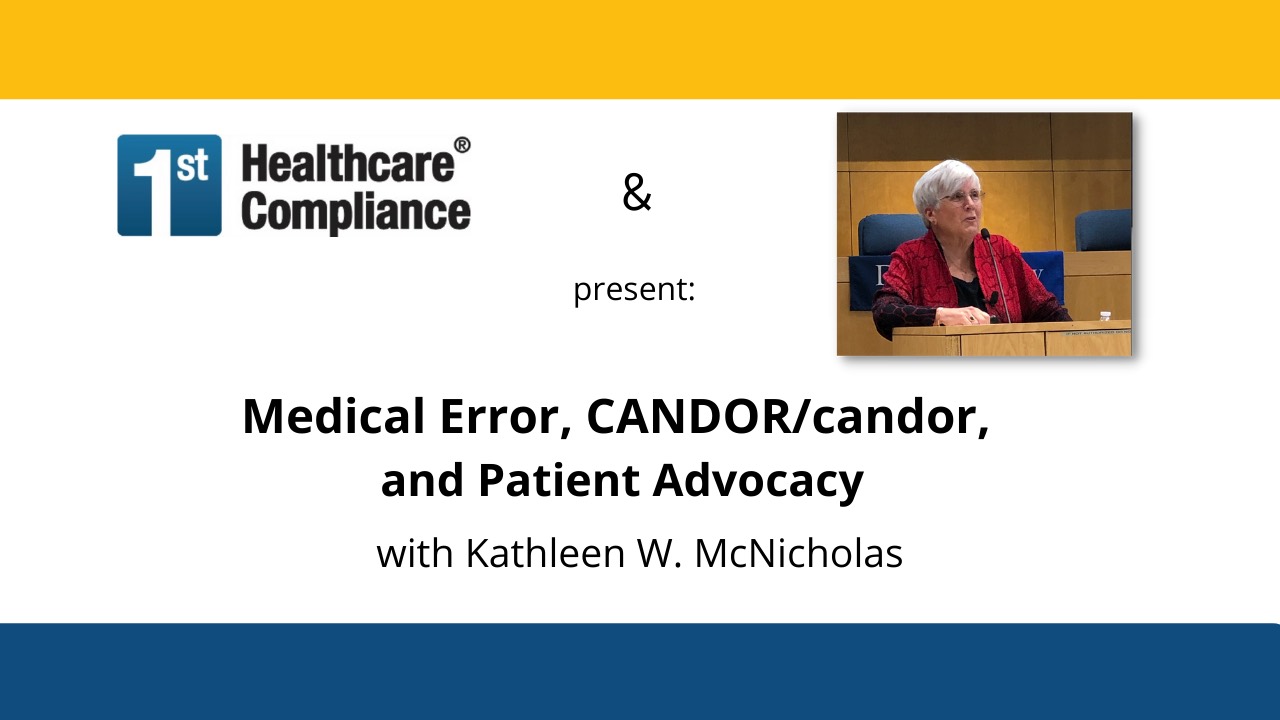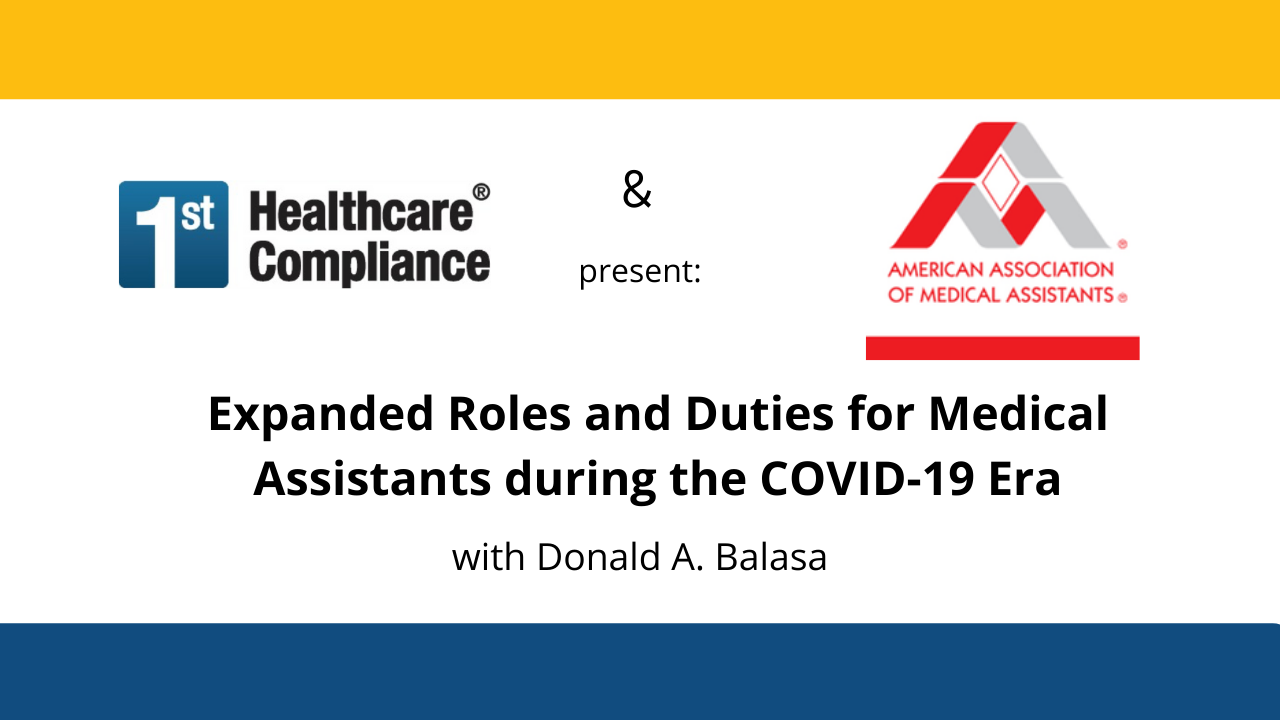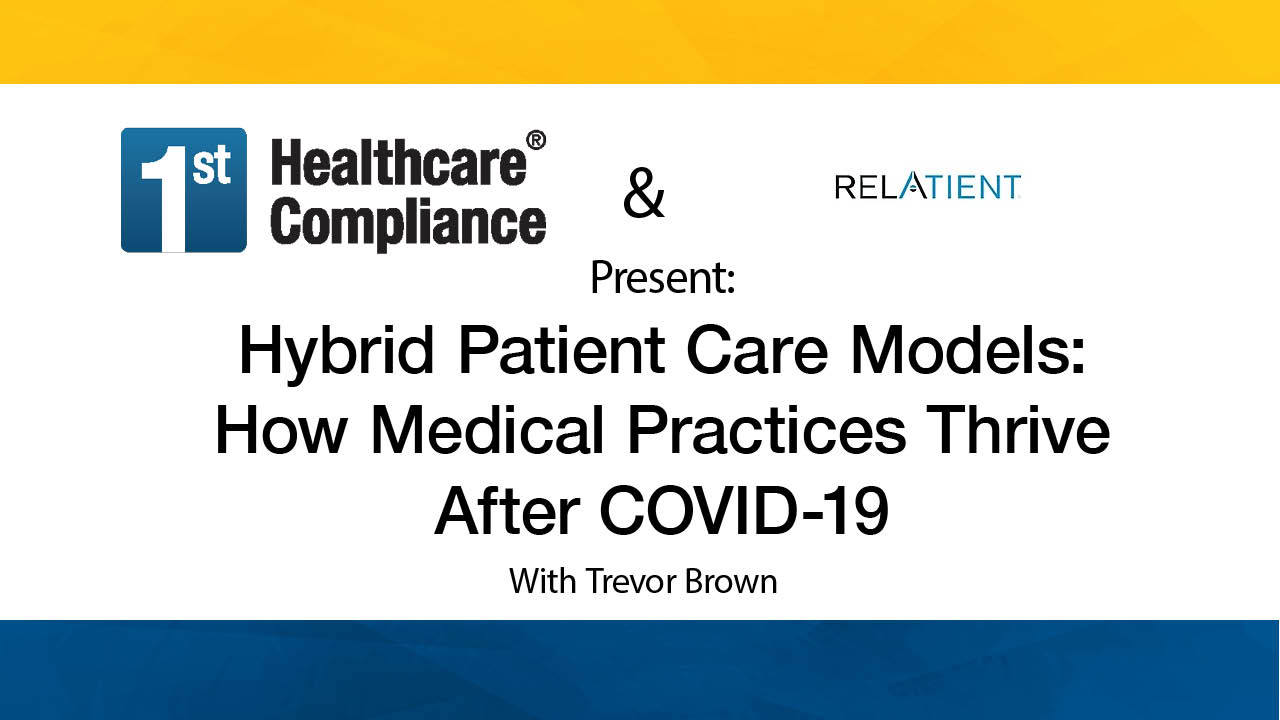
The Dobbs Opinion, the Repealing of Roe, & the Impact on the Privacy & Security of Patient Information
Rachel V. Rose, JD, MBA, principal with Rachel V. Rose – Attorney at Law, P.L.L.C., Houston, TX presents this very timely subject for us.The Dobbs Opinion repealed fifty years of precedent under Roe. The implications of the Opinion extend beyond women’s reproductive rights and impact the privacy rights of all Americans. The purpose of this webinar is to explain the key aspects of the Dobbs Opinion related to privacy from both the Majority and the Dissent’s perspective, address the current legislative initiatives, HHS Guidance, and Executive Orders, as well as appreciate the role HIPAA plays in navigating Dobbs.

Medical Error, CANDOR/candor, and Patient Advocacy
Kathleen W. McNicholas, MD, JD, CHC, CCEP, Consultant and Patient Advocate with Medical Legal Patient Advocacy Inc. will lead this webinar to review medical error and provide an approach to harmed patients. The CANDOR program of Communication and Optimal Resolution will be explained. CANDOR is well established and has been successfully adopted by many medical centers. Without CANDOR in place, patients may benefit from the use of the principles and the help of a board-certified patient advocate.

Expanded Roles and Duties for Medical Assistants during the COVID-19 Era
Donald A. Balasa, JD, MBA, Chief Executive Officer and Legal Counsel of the American Association of Medical Assistants (AAMA) leads this timely and informative webinar. The medical assisting profession has risen to the occasion as the United States and the world have been dealing with the most serious health crisis in the last 100 years. Medical assistants have been asked by public health officials, managers of health systems, and licensed providers to assume expanded roles and perform tasks beyond their normal scope of work. Because of the breadth of their education and training, medical assistants have been able to adapt quickly to these new responsibilities. Medical assistants have been called upon to work in nontraditional settings under the authority and supervision of a dedicated array of clinicians and administrators with whom they had not previously practiced (e.g., pharmacists).The purpose of this webinar is to identity the laws that establish the scope of practice for medical assistants, and to delineate the expanded tasks that medical assistants may be delegated under these laws. The legal principles placing limitations on the scope of work for medical assistants will be explained, and the expanded functions that are not delegable to medical assistants will be set forth.

Hybrid Patient Care Models: How Medical Practices Thrive After COVID-19
https://youtu.be/NpAAUczHYvA
Trevor Brown, Vice President…

Individual’s Rights to Access PHI
An individual’s right to access their protected health information…
